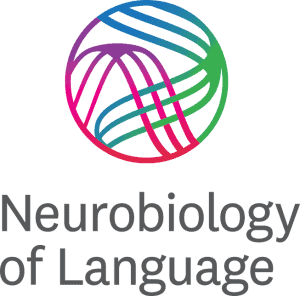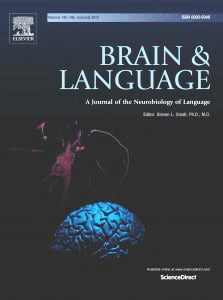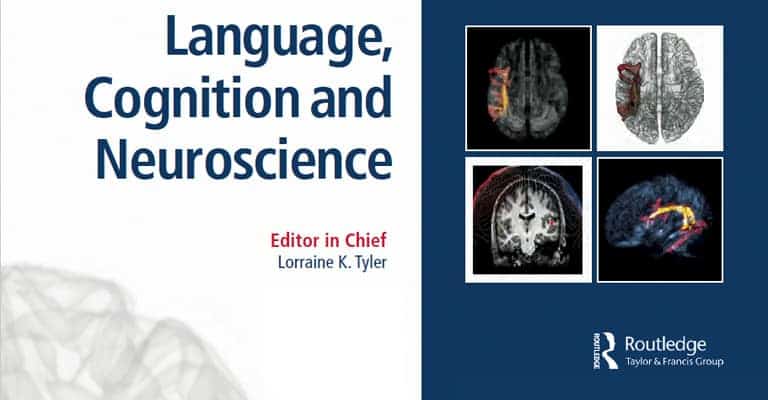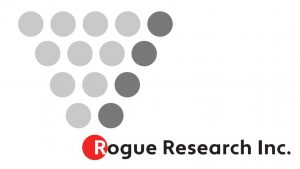The Society for the Neurobiology of Language thanks the following sponsors for their support of our 2025 meeting.
Major Sponsor |
|
 |
National Institutes of HealthThe Society for Neurobiology of Language gratefully acknowledges the generous support of the National Institutes of Health through R13 grant #DC011445. This funding plays a vital role in enhancing the SNL Annual Meeting by supporting speaker travel, materials and supplies, publication and marketing, audiovisual needs, sign language interpreting services, and more. Thanks to this support, the meeting is more accessible and impactful for a diverse range of attendees. We are deeply appreciative of the NIH's continued commitment to the success and accessibility of the SNL community. |
Event Sponsor |
|
 |
University of BirminghamThe University of Birmingham is sponsoring the Welcome Reception. The University of Birmingham is ranked amongst the world’s top 100 institutions and proud to be rooted in of one of the most dynamic and diverse cities in the United Kingdom. Its work brings people from across the world to Birmingham, including researchers, educators and more than 40,000 students from over 150 countries. Cutting-edge research on the Neurobiology of Language is conducted in the School of Psychology and the Centre for Human Brain Health.
|
 |
NSF GrantThis event is supported by the National Science Foundation (NSF) through a conference grant that funds efforts to make SNL 2025 widely accessible for the broader community. We gratefully acknowledge NSF’s commitment to ensuring that all scholars can fully engage in the Society for the Neurobiology of Language. This year, 23 attendees have been supported through funding made possible by the NSF. This material is based upon work supported by the National Science Foundation under Grant No. [2515190]. Any opinions, findings, and conclusions or recommendations expressed in this material are those of the authors and do not necessarily reflect the views of the National Science Foundation. |
Gold Sponsors |
|

|
Neurobiology of Language (The MIT Press)The MIT Press commits daily to re-imagining what a university press can be. Known for bold design and creative technology, the Press advances knowledge by publishing significant works from leading scholars and researchers around the globe for the broadest possible access, impact, and audience. Committed to exploring new disciplines and modes of inquiry, the Press publishes 220+ new books a year and over 35 journals in a wide range of fields. The Press is proud to partner with the Society for the Neurobiology of Language to publish Neurobiology of Language. |
  |
The Brain and Mind Institute at The Chinese University of Hong KongThe Brain and Mind Institute at The Chinese University of Hong Kong is an interdisciplinary hub for conducting human-centered research related to the mind, brain and development. An important mission of the Institute is to develop evidence-based solutions to optimize development of Chinese children, especially those with special needs and those from low-resource settings. We published the first set of brain templates and atlases for Chinese infants between 0 to 3 months of age in 2024. Other ongoing projects include development of screening tools for autism and dyslexia in Chinese children, low-cost early intervention for children in low-resource settings, prenatal training and fetal brain development, and spoken language processing and learning. In 2025, we were awarded an Areas of Excellence project by the Research Grants Council of Hong Kong. |
Silver Sponsors |
|
 |
Frontiers in Language SciencesFrontiers in Language Sciences is a pioneering multidisciplinary journal advancing the understanding of language acquisition, comprehension, production, and structure through formal, cognitive, and neurobiological perspectives. Led by our Field Chief Editor Manuel Carreiras (Basque Center on Cognition, Brain and Language), the journal spans all levels of language, from phonology to discourse, across monolingual, bilingual, and multilingual contexts. The Neurobiology of Language section, headed by Greig de Zubicaray (Queensland University of Technology), showcases cutting-edge research on the neural bases of language using techniques such as neuroimaging, brain stimulation, electrophysiology, and computational modeling in both healthy and clinical populations.
|
 |
NCCR Evolving LanguageThe Swiss National Centre of Competence in Research (NCCR) Evolving Language is a nationwide interdisciplinary research consortium bringing together research groups from the humanities, from language and computer science, the social sciences, and the natural sciences at an unprecedented level. Together, we aim at solving one of humanity’s great mysteries: What is language? How did our species develop the capacity for linguistic expression, for processing language in the brain, and for consistently passing down new variations to the next generation? How will our capacity for language change in the face of digital communication and neuroengineering?
|
 |
University of South Carolina Center for the Study of Aphasia RecoveryThe Center for the Study of Aphasia Recovery (C-STAR) is a multi-disciplinary, NIH-funded research center in the Arnold School of Public Health at the University of South Carolina dedicated to advancing aphasia recovery through neuroimaging, brain stimulation, clinical trials, and community outreach. |
Award Sponsors |
|
 |
Brain & Language (Elsevier)Sponsor of the SNL Early Career Award and the new SNL Dissertation Award. An interdisciplinary journal, Brain & Language focuses on the neurobiological mechanisms underlying human language. The journal covers the large variety of modern techniques in cognitive neuroscience, including lesion-based approaches as well as functional and structural brain imaging, electrophysiology, cellular and molecular neurobiology, genetics, and computational modeling. All articles must relate to human language and be relevant to an elaboration of its neurobiological basis. Along with an emphasis on neurobiology, journal articles are expected to take into account relevant data and theoretical perspectives from psychology and linguistics.
|
 |
Language, Cognition & Neuroscience (Routledge)Sponsor of the SNL Distinguished Career Award. Language, Cognition & Neuroscience publishes high-quality papers taking an interdisciplinary approach to the study of brain and language, and promotes studies that integrate cognitive theoretical accounts of language and its neural bases. The Journal publishes both high quality, theoretically-motivated cognitive behavioural studies of language function, and papers which integrate cognitive theoretical accounts of language with its neurobiological foundations.
|
  |
Journal of Cognitive NeuroscienceSponsor of the SNL Travel Awards The Journal of Cognitive Neuroscience (JoCN) publishes research in the biological bases of mental events and behavior. JoCNForum is a non-peer-reviewed outlet sponsored by JoCN, providing a single archival platform for moderated discussion and debate of topics relevant to the conduct and dissemination of cognitive neuroscience research. |
 |
Department of Language Science and TechnologySponsor of the SNL Travel Awards The Department of Language Science and Technology at The Hong Kong Polytechnic University is an interdisciplinary linguistics department, ranked 51st globally (QS 2025). LST pioneers innovative research by integrating multimodal neuroimaging, machine learning, and generative AI to transform the understanding of multilingual processing, speech technology, and language education. Its work bridges theoretical inquiry with practical applications, addressing global societal challenges through impactful interdisciplinary research and collaboration. |
Bronze Sponsors |
|
 |
Rogue Research Inc.Rogue Research Inc. has been your partner in neuroscience research for over 20 years. As developers of the Brainsight® family of neuronavigation systems for non-invasive brain stimulation, we have helped make transcranial magnetic stimulation and now transcranial focused ultrasound (tFUS) more accurate and more reproducible while keeping it simple and effective. Our next-gen Elevate TMS device and companion robot offer better control of the pulse effect and improve reproducibility and efficiency for automated coil placement and mapping. We also offer Veterinary surgical navigation and robotic microsurgery equipment.
|
 |
ANT North America IncANT Neuro is a technology leader in high-density EEG, offering state of the art systems tailored to the demanding requirements of cutting-edge research. ANT's eego line of EEG devices and new saline-based EEG nets enable efficient collection of high-density EEG data (8 – 256 channels) either at rest or during movement. ANT offers specialized EEG caps for study of neonates and infants.
|
 |
Brain Vision LLCBrain Vision partners with scientists and institutions at the forefront of neurophysiological research, helping them select and effectively utilize state-of-the-art hardware and software from the world’s leading manufacturers of EEG, fNIRS, non-invasive brain stimulation, peripheral physiology, experience sampling, eye tracking, and other solutions. We deliver personalized, full-service support to further our primary goal of assisting our customers as they strive to attain their maximum research potential and advance the field of neuroscience. Connect with our Scientific Consultants at or +1.877.EEG.4MRI (+1.877.334.4674). |